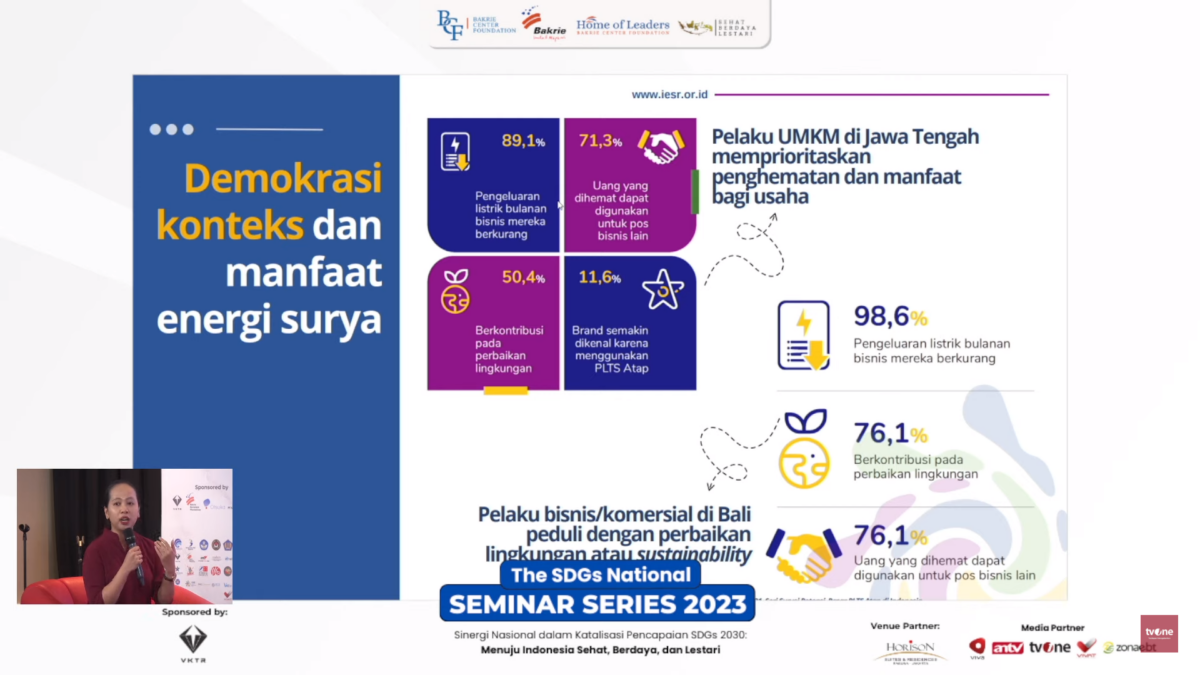Jakarta, 5 October 2023 – Energy is a basic human need not only to support daily activities but more importantly to increase productive activities. Solar energy is a renewable energy source that can realize energy democratization.
Solar energy fulfills several aspects for the democratization of energy such as the availability of resources throughout the year, and the flexibility of the scale of installation. For a nobler goal, by installing solar panels, users contribute to reducing emissions from the energy sector. These various reasons show that motivations for using solar PV can vary.
This is in line with the findings of a market survey conducted by the Institute for Essential Services Reform (IESR), one of which explored respondents’ motivations for using solar PV. Marlistya Citraningrum, IESR Sustainable Energy Access Program Manager, in the Seminar ‘Solar Energy Policy and Action Plan as a Form of NRE Commitment towards Indonesia’, Thursday 5 October 2023, explained that motivations can vary from one region to another.
“MSMEs in Central Java choose rooftop PV because they are interested in the savings so that their electricity bill money can be allocated to other things. Meanwhile, business people in Bali have a high awareness of maintaining harmony with nature. “Apart from that, they will get positive branding as an environmentally friendly business entity,” said Marlistya.
To increase public interest in using solar energy, several things need to be done by stakeholders, including the government, in creating an ecosystem that supports the growth of renewable energy.
Three things that must be pursued to encourage participation by more parties are first, regulations that are clear and supportive and well communicated so that the public gets information about rooftop PV regulations easily and without confusion. Second, there are examples of users and easy access to service providers; third, provide incentives and increase access to financing.
In the same forum, Dedi Rustandi, Intermediate Expert Planner Coordinator for NRE at the Ministry of Bappenas stated that solar energy achievements were still below RUPTL target.
“There are a number of main causes, including the pandemic which has prevented electricity demand from growing significantly, there is uncertainty in the investment climate for the business, as well as delays in project procurement (related to governance),” said Dedi.
Dedi admitted that there are still a number of inefficient policies, resulting in the use of solar energy not being optimal in Indonesia.

